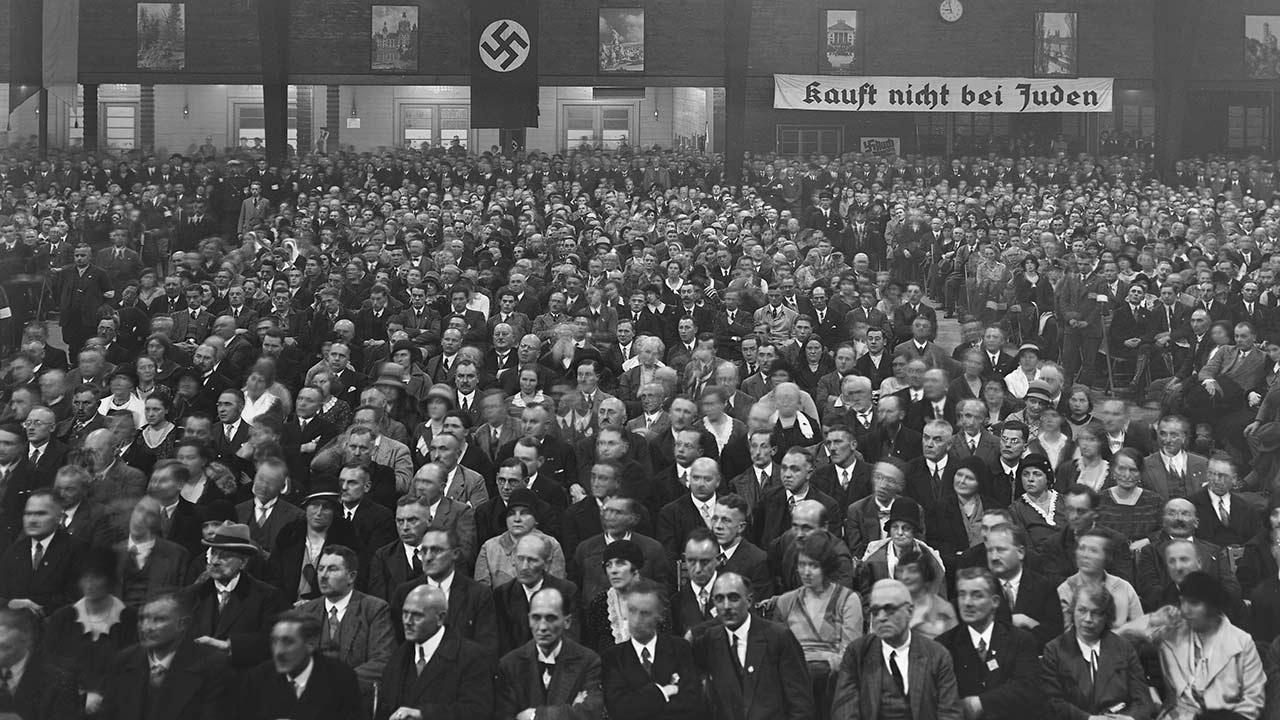Nakba is a gruesome part in the lives and history of Palestinians. Why does it hold such importance in the context of the current scenario? With the occupation having transcended all bounds of civility and humanity, a second Nakba is looming over the destinies of Palestinians in Gaza. To understand why, we need to explore the event that was Nakba and how it came to be.
The word Nakba means “catastrophe” and holds a significant value in Palestinian history. May 15, 1948 witnessed the devastating displacement and dispossession of the Palestinians from their lands, which coincides with what the settler state of Israel considers the day of its “independence.” Though the displacement had begun much earlier, Nakba marks the official day of commemoration for the violence that involved more than 70 massacres, killing of 15,000 Palestinians, and destruction of about 530 cities and villages.

The Nakba resulted in occupation of 78% of Palestine and it being termed as “Israel.” This atrocious event didn’t happen in a vacuum. It originated with British interference and the fundamental extremist ideology of Zionism. Palestine, considered to be the holy land promised to them by God, was decided upon by Zionists to settle in who claimed it a state for their own race.
In 1799, Napoleon Bonaparte, the French conqueror, aimed to defeat the Ottoman Empire that had been reigning over the land earlier. He called upon the Jews as reinforcements, promising them support in the “reclamation” of their land and in their fight against their “oppressors”. Though he was defeated, the seed was sown. The Ottoman Empire fell in 1914, resulting in the British occupying Palestine for its imperial interests. The British revived Napoleon’s policy and vowed for a “national home” for the Jews in Palestine. By 1919, Zionist migration, aided by the British, intensified.
Chaim Weizmann, the prominent propagator of Zionism, and later the President of the state of Israel, aimed to make Palestine “as Jewish as England is English.” This view was radically propagated through media, mobilising and propagandising the Jews. The scripture was used extensively to justify the self-proclaimed entitlement of the Jews to reclaim their land which was allegedly “wrongfully” occupied by the Arabs. Chaim even used his political influence in Britain, exerting force on the politicians, thus explaining the British support. By 1935, the population of Jews was already 27%.

During the Nazi regime in Germany, around 30-60,000 European Jews found refuge in Palestine which offered them shelter when no other European nation would. British interference and its support for Zionism-inspired settler colonialism, however, necessitated revolts from the Arab Palestinians. The British-aided Zionists propagated violent displacement of the Arabs from their lands and occupied the land for themselves alone. This Arab Revolt which lasted till 1939 was violently crushed: Around 2000 homes were destroyed while 9000 Palestinians were subjected to torture in concentration camps.
The British, fearing clashes between the natives and the settlers, tried to control migrations of European Jews. Due to this, Zionist armed groups declared war on Britain in 1944. By 1947, the British were gripped by concerns about losing their own civilian peace and security. They handed over control to the newly-formed United Nations, which legislated for a two-state solution through Resolution 181 which in itself was biased and imbalanced. War broke out between the Palestinian Arabs and the Zionists.
The Zionists launched vicious attacks on the natives, forcing them out of their homelands, amounting to ethnic cleansing. This event is termed Nakba, the catastrophe. Displacements and massacres were happening even before the 15th of May. 440,000 Palestinians were driven out from 220 villages, and most infamous massacres had already happened. During first half of 1949, 750,000 people were forced to flee as internal refugees, mostly to Gaza, and some to West Bank and Syria.
The Palestinians were unable to defend themselves because they were a colonised territory, having faced British colonialism for a long time. With the heavily scrutinised movement of person and parcel, it was not really possible for them to stand against the strong military of the British and the Zionists. Furthermore, most of the people killed were men, further reducing the capacity of defence. People who were already refugees in their own land were starving for food, let alone have money to buy arms: “I swear to God, we tasted it; we tasted starvation like no one else did,” said Hosni Mohammad Smada, a refugee. Another, Sami Kamal Abdul Razek, said, “When the British were preparing to leave Palestine, we didn’t have weapons. My father gave me money and I bought a gun with only three bullets for 100 Palestinian liras.” Medical aid too became a bleak commodity.

With the current scenario of the incessant raids, arrests, assaults and murders in the occupied West Bank, the inhuman carpet-bombings of Gaza following the “unforeseen” 7 October Hamas attack on Israel, and the forced occupation of Jerusalem, the inevitability of another Nakba looms poignantly large over the Palestinians. Arbitrary arrests, encounters, demolitions and restricted movement across their lands, especially in light of the inhumane statements given by Israeli spokespersons, lend credence to this possibility.
Recently, videos of Palestinians, with their hands raised in surrender, crossing northern Gaza to the south in hopes of shelter, did the rounds of the internet. The refugees were targeted, attacked and bombed. They were on foot, moving in a massive crowd, displaced and re-displaced, losing their lands all over again. The picture was nothing short of another Nakba, unfolding right in front of one’s eyes.
Ifrah Fatima is a student pursuing English literature at Jamia Millia Islamia
Edited by: Gunjit Verma






GIPHY App Key not set. Please check settings